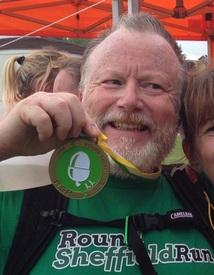calories burned trackers?

gradschoolnanny
Posts: 3 Member
Hey all. I'm looking for advice on the calories burned trackers out there. I am not terribly techy so I've read the reviews but they are kinda Greek to me. I am looking for any input from anyone who may have tried some of the trackers and advice on which ones they think are worth the money.
I'm looking for an accurate account of my calories burned. My pedometer seems to think I am walking further than I am each day. I have a very hard time dropping weight and have finally found the magic formula for my body but it requres being very accurate about calories burned. I refuse to starve myself to drop weight. I have a host of medical concerns that require me to nourish my body very well so exercise is my only option to get the pounds to come off.
I don't mind paying a bit more for the right tool. It's very important to get my health back.
thanks in advance
I'm looking for an accurate account of my calories burned. My pedometer seems to think I am walking further than I am each day. I have a very hard time dropping weight and have finally found the magic formula for my body but it requres being very accurate about calories burned. I refuse to starve myself to drop weight. I have a host of medical concerns that require me to nourish my body very well so exercise is my only option to get the pounds to come off.
I don't mind paying a bit more for the right tool. It's very important to get my health back.
thanks in advance
0
Replies
-
None of them are 100% accurate ... period. You need to ACCURATELY log your food and estimate as close as you can your exercise and see how your real world results are .. and adjust accordingly.
But of all the "trackers" I have seen .... if you are a dieter, then the Fitbit is probably the best for you. However their best model .. the Force has been recalled. I would wait til their new models come out if that is an option, cause their present models are not that good.0 -
The only way to be accurate is to invest in a heart rate monitor with a strap. I use the Bowflex brand.0
-
are they expensive?The only way to be accurate is to invest in a heart rate monitor with a strap. I use the Bowflex brand.0 -
It depends on what you are tracking...
If you are wanting to track steps and food..pedometer and MFP and a kitchen scale.
If you are wanting to track steps, activities, sleep, food.... activity tracker, MFP and Kitchen scale
If you are tracking steady state cardio (running, walking, road bike etc), food HRM with a strap and MFP and a kitchen scale
If you just want to lose some weight with a bit of exercise, MFP and a kitchen scale and a watch is all you need.
I recently got a Jawbone UP...I like it but mainly cause I am a geek who loves data. I like that it tracks my sleep patterns, my steps (sort of accurately) and has a feed and stuff like that. It syncs to MFP so that's good I guess, it gives me a food score but I don't pay much attention to it. But I also use a Pedometer (double check to the Jawbone since it's new) and I use a couple other apps on my phone to track my walks and bike rides...
I am not a steady state cardio person tho..most of my time is spent in the weight room and there is no way to really track that...
As for you it sounds like the food scale would be the key for you. Weight loss is primarily about your eating not your exercise...you have to log accurately and consistently and no you don't have to starve. Depending on your stats you could be eating as much as 1900 calories a day and still lose weight.0 -
The truth of the matter is that calories burned trackers are all "guesstimates" at most. Some do better, some worse. Trackers get better, but often still not great, if you use something with a heart-rate monitoring component but most of those are geared toward workouts or activities, not really designed to be worn all day. The only one I can think of that is a all-day-use HR monitor and activity tracker is the Basis watch (www.mybasis.com) but I'm not sure about it's calorie tracking features.
All that's a long-winded way of saying that you should probably take all of these devices with a large grain of salt. Measuring calorie burn has so many variables associated with it that it's a fairly difficult proposition without invasive devices, and possibly even then.
Having said all that, and having used both Fitbit (flex and one) devices and now a Garmin Vivofit, I think the Vivofit is more accurate. At least for me. The Fitbits, especially the Flex, seemed to be much more easily "fooled." For example, putting my hands on the arms of my office chair and rocking the chair back and forth would cause the Flex to register a step for every rock. That's just one example of things I did that caused the Flex to register phantom steps, thereby increasing my measured activity for the day, and thus increasing my estimated calorie burn. The Vivofit seems much better in that regard, and it's calorie tracking, from my seat-of-the-pants estimations, seem to be about right. Certainly using it's calorie burn numbers, in conjunction with the burn numbers from my Garmin bicycle computers when I ride, seem to be generating reasonable all-day calorie burn numbers for me. You mileage may certainly vary.
Hope this helps.0 -
are they expensive?The only way to be accurate is to invest in a heart rate monitor with a strap. I use the Bowflex brand.
It depends on the brand , but they have a lot that are reasonably priced I got mine off of Amazon for about 40.00 bucks with shipping.0 -
The only way to be accurate is to invest in a heart rate monitor with a strap. I use the Bowflex brand.
As has been beaten to death in literally hundreds of MFP threads, for most people, most exercises, HRMs aren't accurate either.0 -
None of them are 100% accurate ... period. You need to ACCURATELY log your food and estimate as close as you can your exercise and see how your real world results are .. and adjust accordingly.
You may be able to accurately log the food that you eat BUT the Energy number that you come up with will ONLY be an Estimate.
That's the real problem with trying to lose (or gain) - you can NEVER accurately log expenditure or consumption outside of a Lab..
Buying a HRM will 'likely' increase the accuracy over not having one!! But we're just guessing... maybe the folks that get to goal are better guessers :-p0 -
The only way to be accurate is to invest in a heart rate monitor with a strap. I use the Bowflex brand.
As has been beaten to death in literally hundreds of MFP threads, for most people, most exercises, HRMs aren't accurate either.
Exactly .. Want accuracy? Go live in a Calorimeter Room for a while.0 -
The only way to be accurate is to invest in a heart rate monitor with a strap. I use the Bowflex brand.
As has been beaten to death in literally hundreds of MFP threads, for most people, most exercises, HRMs aren't accurate either.
Exactly .. Want accuracy? Go live in a Calorimeter Room for a while.
There is a marginal of error for everything even counting the calories in your food. The law allows for a 20 percent error when creating those lovely little nutrition labels we all rely so heavily on. So yes nothing is 100 percent but to get the most accuracy, I think the HRM is the way to go.0 -
The most accurate one is the BodyMedia Fit, which measures more than the FitBit or Jawbone Up (these calculate calories burned based on steps only, so they're not so great for stationary workouts like cycling and weightlifting). It looks at skin temperature, amount of sweat produced, and heat flux to calculate calories burned. The program also learns about you the more you wear it, so it may become more accurate over time.
http://www.cnet.com/news/my-life-with-the-bodymedia-fit-activity-tracker/
There was another review by a bodybuilder who wore a BodyMedia and FitBit (that I can't find right now) and found that the BodyMedia shoed an increase in calories burned during lifting sessions while the FitBit showed him as basically inactive during the same time period.
People also don't like the fact that the BodyMedia Fit is visible on your arm or that a subscription is required to view the online data ($60 a year).
What type of workouts do you do? Do you care if people see your tracker? It's all your preference.0 -
The only way to be accurate is to invest in a heart rate monitor with a strap. I use the Bowflex brand.
As has been beaten to death in literally hundreds of MFP threads, for most people, most exercises, HRMs aren't accurate either.
Exactly .. Want accuracy? Go live in a Calorimeter Room for a while.
There is a marginal of error for everything even counting the calories in your food. The law allows for a 20 percent error when creating those lovely little nutrition labels we all rely so heavily on. So yes nothing is 100 percent but to get the most accuracy, I think the HRM is the way to go.
NOt for weight lifting, HIIT training, Circut training, Moutain biking etc...notice none of these are Steady state cardio...that is what HRM are designed for...0 -
There is a marginal of error for everything even counting the calories in your food. The law allows for a 20 percent error when creating those lovely little nutrition labels we all rely so heavily on. So yes nothing is 100 percent but to get the most accuracy, I think the HRM is the way to go.
NOt for weight lifting, HIIT training, Circut training, Moutain biking etc...notice none of these are Steady state cardio...that is what HRM are designed for...
I think that you're right .. but like people want a 'magic' pill - they also want a Single Size Fits All solution .. and I'd bet there isn't one.
You can't 'measure' energy expenditure with a HRM .. you can only imply it .. and the accuracy of your 'guess' is based upon the accuracy of the model ... with all of it's intrinsic variables .....Age, Gender, weight, time, temperature, body type, exercise type, current state of health etc..... etc..... etc..........0 -
The only way to be accurate is to invest in a heart rate monitor with a strap. I use the Bowflex brand.
As has been beaten to death in literally hundreds of MFP threads, for most people, most exercises, HRMs aren't accurate either.
Exactly .. Want accuracy? Go live in a Calorimeter Room for a while.
There is a marginal of error for everything even counting the calories in your food. The law allows for a 20 percent error when creating those lovely little nutrition labels we all rely so heavily on. So yes nothing is 100 percent but to get the most accuracy, I think the HRM is the way to go.
NOt for weight lifting, HIIT training, Circut training, Moutain biking etc...notice none of these are Steady state cardio...that is what HRM are designed for...
Perhaps but seeing as though the original posters workout routine consist of walking the HRM is good, and more accurate than a pedometer for that!0 -
thanks for all the great advice from everyone. I have been frustrated with the 'implied' calories burned because I sometimes don't see the scale move and I know how well I eat. I know body chemistry very well as a health care professional and someone who defies science at every turn.
I know too that the term calorie deficit isn't always as simple as it seems. My doctors know my history, they see my bloodwork which is that of an athelete yet I am obese. I eat clean. I nourish my body well, with execellent sources of protein, lots of vegetables, limited grains (because I have allergies) and no dairy (allergies) I don't eat sweets (don't like them) and I love to exercise yet my body hangs on to weight like crazy. ( I am recovering from some pretty significant illnesses however so it could be that near death has scared my body into keeping hold of every little pound). My doctors are not concerned as I amnow the picture of health other than being 60 lbs overweight.
I am concerned because it limits what I can do physically.
Anyway, I seem to have found a formula which works for me but it does mean making sure that I burn at least an extra 500 calories a day through cardio. If I drop below that I gain. I like the MFP calculators but sometimes I wonder how accurate they are. If looks as though the general consensus is that nothing is terribly accurate.
Thanks though for all the input. Much appreciated.0
This discussion has been closed.
Categories
- All Categories
- 1.4M Health, Wellness and Goals
- 398.1K Introduce Yourself
- 44.7K Getting Started
- 261K Health and Weight Loss
- 176.4K Food and Nutrition
- 47.7K Recipes
- 233K Fitness and Exercise
- 462 Sleep, Mindfulness and Overall Wellness
- 6.5K Goal: Maintaining Weight
- 8.7K Goal: Gaining Weight and Body Building
- 153.5K Motivation and Support
- 8.4K Challenges
- 1.4K Debate Club
- 96.5K Chit-Chat
- 2.6K Fun and Games
- 4.8K MyFitnessPal Information
- 18 News and Announcements
- 21 MyFitnessPal Academy
- 1.5K Feature Suggestions and Ideas
- 3.2K MyFitnessPal Tech Support Questions







